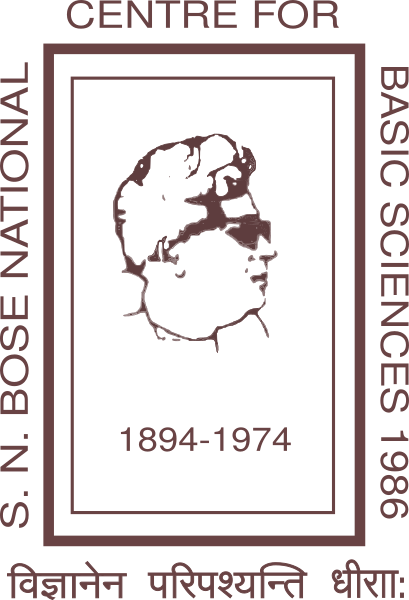
S. N. Bose National Centre for Basic Sciences
Under Department of Science and Technology, Govt. of India
BoseStat@100: Centenary of Bose Statistics
Links
- Home
- Committees
- International Conferences
- Photonics, Quantum Information, and Quantum Communication
- Jan 29 - Feb 02, 2024
- Photo gallery
- Media coverage
- Youtube video
- Women in Quantum Science and technologies
- July 17 -July 19, 2024
- Photo gallery
- Media coverage
- Youtube video
- Bose-Einstein Condensation, Superconductivity, Superfluidity, and Quantum Magnetism
- Nov 12 - Nov 16, 2024
- Photo gallery
- Media coverage
- Youtube video
- Photonics, Quantum Information, and Quantum Communication
- Outreach Programmes
- Other Outreach Programmes
- Nov 20, 2024
- Photo gallery - Presidency University
- Oct 18, 2024
- Photo gallery - NISER
- Sept 30, 2024
- Photo gallery - Rahara college
- Sept 28, 2024
- Photo gallery - Serampore college
- Sept 27, 2024
- Photo gallery - GITAM University
- Sept 13, 2024
- Photo gallery - APC college
- Sept 03, 2024
- Photo gallery - Ramananda college
- IOP's coverage of BoseStat@100
- Other Links

Welcome to BoseStat@100!
Satyendra Nath Bose was one of the founding fathers of quantum mechanics, the most successful description of the physical world. His pioneering work on quantum statistics has paved the way for development of modern quantum technologies including Bose-Einstein condensation, quantum superconductivity, and quantum information theory. In 1924, Bose authored the last of the four revolutionary publications which led to the new quantum mechanics (the others being those of Planck in 1900, Einstein in 1905, and Niels Bohr in 1913). Half the fundamental particles in the Universe – BOSONS – are named after him.
He derived Planck’s law in a revolutionary way which impressed Einstein, and subsequently they continued their academic interaction. Their partnership resulted in new physical theories, including Bose-Einstein statistics and the Bose-Einstein condensate. Several Nobel Prizes were later awarded for work related to BOSONS (e.g. 2001 Nobel Prize in physics for ‘the achievement of Bose-Einstein condensation in dilute gases of alkali atoms, and for early fundamental studies of the properties of the condensates’ and the 2013 Prize ‘for the theoretical discovery of a mechanism that contributes to our understanding of the origin of mass of subatomic particles’, namely, the Higgs Boson). Along with developing the new quantum statistics, Bose’s work also constitutes the foundation of novel technologies which also finds applications in the Second Quantum Revolution. Inspired by Gurudev Rabindranath Tagore, Bose devoted considerable time to promoting the study of science in one’s own mother tongue. In 1948, he set up Bangiya Bijnan Parishad, an institution for the popularization of scientific knowledge in Bengali.
S. N. Bose National Centre for Basic Sciences, an Autonomous Research Institute established in 1986 under Department of Science and Technology (DST), Government of India to honour the life and work of Professor S. N. Bose, plans to celebrate the centenary of Bose’s colossal work in 2024 by organizing three International Conferences and several Outreach Programmes throughout the year. While the Conferences would provide opportunities for the subject experts across the globe to come together and exchange their ideas for novel scientific and technological endeavour, the Outreach Programmes will create momentum towards popularising science among common people and young students.